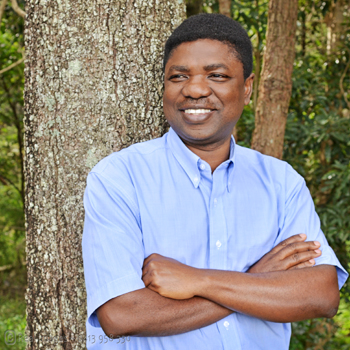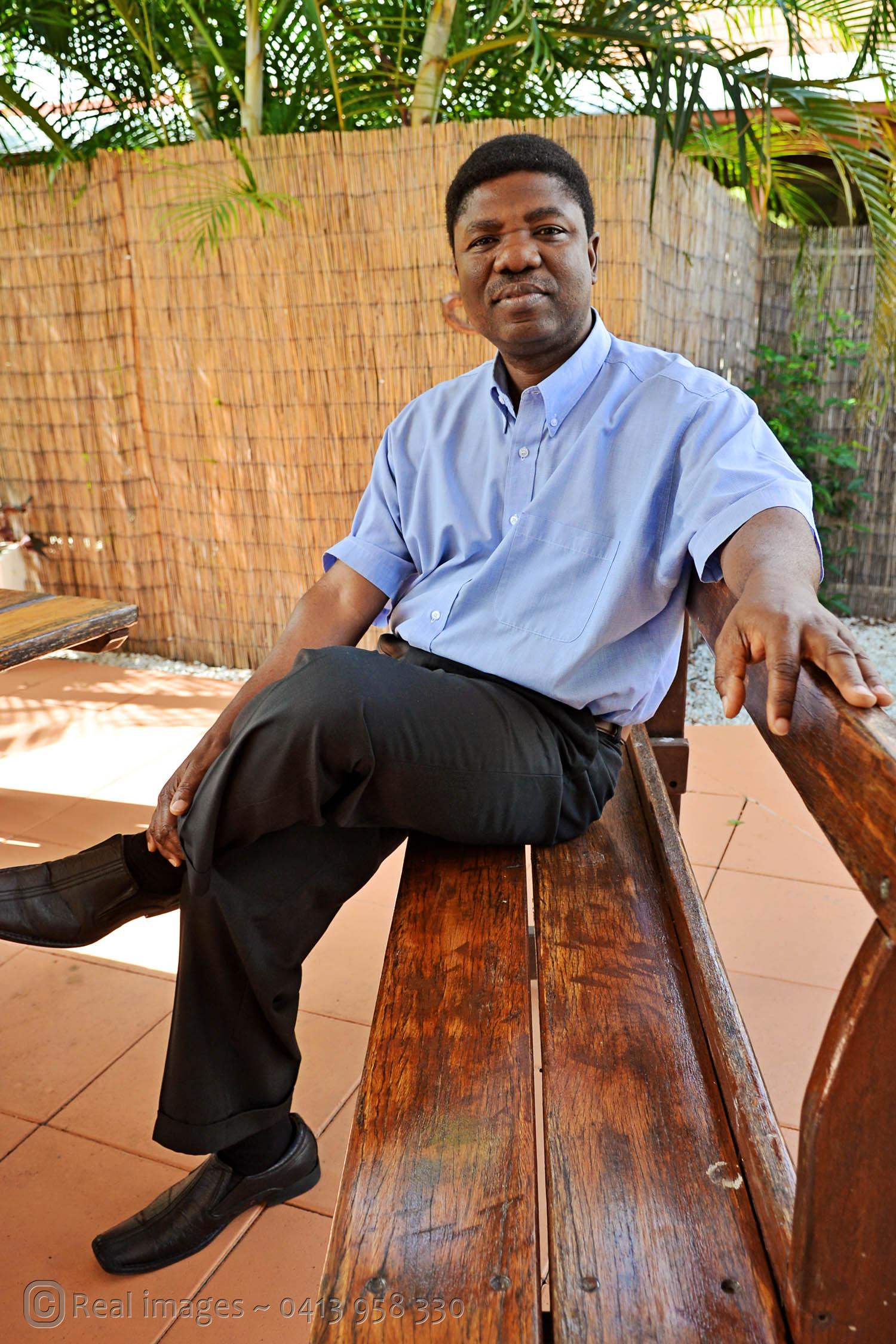 Stephanie Hunt |
Stephanie Hunt |  Fri, June 28, 2013 at 19:00 |
Fri, June 28, 2013 at 19:00 | One evening my husband Dennis and I were talking about resilience. “If you want to know about resilience you should talk to Komla,” Dennis exclaimed. He and Komla volunteer together with the Mentoring for Men program and obviously Komla stood out. “That man has lived in fear for his life and yet he is still so optimistic,” Dennis continues. I realise that I will have to interview Komla and get the whole story.
------------------------------------------------------------
 Old Fears Don’t Die
Old Fears Don’t Die
Komla greets me at the Coffs Harbour Neighbourhood Centre with a shy smile and a firm handshake. When our interview commences he seems guarded and wants to know where his profile will be published. “Not on Facebook,” he declares when I explain that his story will be published on a website and a Facebook page. “What is he afraid of,” I wonder.
As it turns out, Komla’s fears began in the early 90s in his homeland Togo. This narrow strip of land on the West African coast was embroiled in a desperate struggle between an iron-fisted dictator and opposition supporters. In January 1993 the military went on an 8-hour rampage in the capital city Lomé, firing indiscriminately and killing innocent civilians. Over 300,000 people fled in fear for their lives. Komla was amongst them.
Then a 26-year-old student, Komla had left his rural home to earn his bachelor degree in the capital and found himself in a city ruled by political chaos. “If you were from my ethnic group you couldn’t live in Togo,” he says. “The soldiers would kill you.” And Komla knew this to be true because some of his friends and two of his uncles had been murdered by the military.
 Komla simply walked the short distance into neighbouring Ghana and began life as a refugee – never to return to the country of his birth.
Komla simply walked the short distance into neighbouring Ghana and began life as a refugee – never to return to the country of his birth.
The Catholic Church and the Ghanaian government provided support and Komla worked in a high school, teaching Philosophy and Physics. A year later, when the United Nations High Commissioner for Refugees (UNHCR) announced scholarships for refugees, Komla’s hand shot up. By March 1994 he was studying for his Masters in Sociology at the University of Ouagadougou in Burkina Faso.
For the next 17 years Komla lived in Burkina Faso. He studied, worked, met his wife Alimata, and had 3 children. But he remained always a refugee, a man without a country.
On completing his Masters degree Komla worked as an education research assistant with NGO’s and research institutions. In 2007 he took a position with the Foundation for Community Development, responsible for the monitoring and evaluation of community schools established to educate disadvantaged children.
Komla loved working with the community schools, reveling in the social interaction and the opportunity to make a difference. “When you are working with communities you feel that you are useful,” Komla says. “It was a way for me to apply my learning and this is fantastic.”
Despite his joy in his work Komla was increasingly concerned about the safety of his family. He still feared the soldiers in Togo. “Burkina Faso neighbours Togo and the heads of state of the two countries are friends. It was very easy for the Togo soldiers to come to Burkina Faso.”
 Even without the threat of Togolese soldiers, life in Burkina Faso felt unsafe for a refugee. “If the gangs knew you were a refugee they tried to provoke you,” recalls Komla. “One man claimed publicly that he could kill me and nothing would happen.”
Even without the threat of Togolese soldiers, life in Burkina Faso felt unsafe for a refugee. “If the gangs knew you were a refugee they tried to provoke you,” recalls Komla. “One man claimed publicly that he could kill me and nothing would happen.”
Increasingly nervous, Komla contacted UNHCR in 2008. “I wanted to see if it was possible to find me another country where I can feel better,” he says.
In January 2011, Komla and his family arrived as UNHCR refugees in Coffs Harbour. “I got really lucky.” Komla laughs.
He explains that he had no choice in the matter but feels blessed that his family was sent to Coffs. “The education is very good and life is not too expensive,” he says. But most important is the acceptance and sense of belonging. “We are happy here because we have the African community and we also have our church members who are very kind to us.”
Komla arrived with a plan. “Before coming to Australia I have my aspirational goals and my plan on how to get there,” he says. Step one was to learn English and he enrolled immediately in English classes, earning his Certificate 3 within 3 months. Next he needed to gain skills that would help him find employment. He enrolled in Business Administration at TAFE, earning his Cert 3 by the end of 2011 and his Cert 4 a year later.
Coffs Harbour is a difficult place to find a job, but Komla is a patient man. Since early last year he has volunteered as an office assistant at the Coffs Harbour Baptist Church, worked with a local Mentoring for Men group and helped out at the Neighbourhood Centre every Thursday. This year he was shortlisted for a job with the North Coast Settlement Services, and when he missed out due to limited job experience, he volunteered here as well.
“I think I am on plan.” He smiles. “There are some obstacles but it is going well.” Komla wants desperately to earn his PhD in Sociology, but he knows he must find a job first. He is confident that paid work will come as he gains experience and local contacts.
Komla has found a place where he can feel better. His eldest child is doing well in high school, his wife is well networked within the African and church communities, they have welcomed a fourth child. The community has supported Komla’s family and in return he has supported the community with voluntary work and advice. He has a plan. He is safe.
We reach the end of our interview and Komla leans across the desk. “I would prefer no Facebook.” Even wrapped in the warmth and security of far away Coffs Harbour old fears will not die.
------------------------------------------------------------
Komla nominates Gai Newman as the most interesting person he knows on the Coffs Coast. Gai works at the Neighbourhood Centre, which provides a welcoming place for newcomers to our community. “She has been very kind to me,” Komla says. I’m excited to meet a woman who is helping to facilitate diversity on the Coffs Coast.
 Stephanie Hunt |
Stephanie Hunt |  Fri, June 28, 2013 at 19:00 |
Fri, June 28, 2013 at 19:00 |
Reader Comments (1)
There are a lot of us that need to be educated about the stories behind these faces on our streets. Now how can we do that?